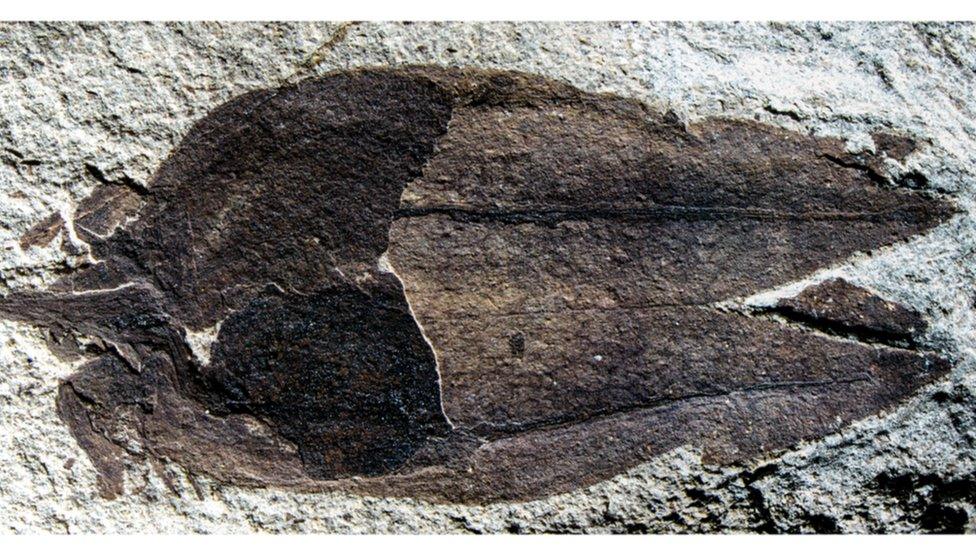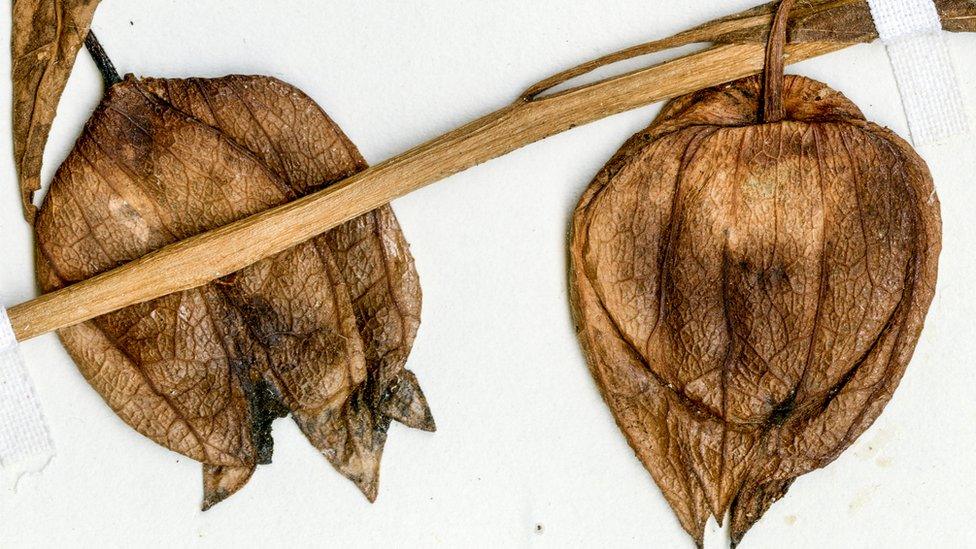Fossil fruit from 52 million years ago revealed
- Published

The berry, which has turned to coal, filled the lantern-like husk
A fossilised fruit dating back 52 million years has been discovered in South America.
The ancient berry belongs to a family of plants that includes popular foods such as potatoes, tomatoes and peppers.
The plant family's early history is largely unknown as, until now, only a few seeds have been found in the fossil record.
Scientists say the origins of the class go back much further than previously thought, by tens of millions of years.
The plant, a type of Physalis, was found in a fossilised rainforest in Patagonia.
It belongs to the Solanaceae, or nightshade, family of flowering plants, which includes crops, tobacco, medicinal plants and garden flowers such as the petunia.
'Incredibly rare'
Peter Wilf, professor of geosciences at Pennsylvania State University, led the team that discovered the ancient berry.
He told BBC News: "It's the only fossil fruit ever found of this whole group of plants, that now has over 2,000 species.
"A lot of the evolutionary history of life, especially plants, which are rare as fossils, is largely unknown.
"Here we have this discovery of these incredibly rare, delicate fossils - here you have a berry surrounded by this papery calyx - it's almost unheard of that such a thing could be fossilised."

Dried fruit specimens of a modern coastal ground cherry from Florida
The fruit is closely related both to tomatillos, which are used commonly in Mexican cooking, and to ground cherries, or Physalis.
They have papery lantern-like husks that grow around fleshy, often edible, berries.
Previously it was thought that tomatillos and ground cherries evolved more recently around the time the Andes rose.
About 50 million years ago, South America was closer to Antarctica and Australia than it is today and the world was also much warmer.
The researchers believe the area will yield many more discoveries of fossil plants.
"Paleobotanical discoveries in Patagonia are probably destined to revolutionise some traditional views on the origin and evolution of the plant kingdom," said N Ruben Cuneo of CONICET, Museo Palentologico Egidio Ferulgio.
The research is published in the journal, Science, external.
Follow Helen on Twitter, external.